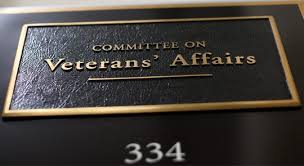
Sen. Johnny Isakson, R-Ga., is chairman of the Senate Committee on Veterans’ Affairs and he is committed to our veterans. He understands the predicament we, civilians, put our veterans through upon their arrival. When Isakson became chairman of the U.S. Senate Committee on Veterans’ Affairs at the start of 2015, he made a personal commitment to work with anyone willing to fix the problems at the VA. And that is the type of initiative that one needs to see to acknowledge that work is being done. There will always be this type of committed work outstanding, but as long as we have honest, hardworking people in appointed power, the advancements will chip away at the need.
Isakson states that since holding that title, progress has been made. In 2017, “positive productive and bipartisan progress” has been made that has overshadowed years in the past.
Last year, the Senate has added ten major pieces of veterans legislation, all of which have been signed into law. This type of work has helped reform the VA and strengthen veterans’ health care, benefits and support. This is monumental as it worth talking about.
Isakson goes on to say that, “We have one of the most bipartisan and productive committees in the Senate. Every single member of our committee, (within the Veterans’ Affairs committee) Republican and Democrat alike, have put aside partisan differences and worked together on behalf of our nation’s veterans.” This is also really important to note because that means that lawmakers are working together despite their differences and this is an incredible show of progress and maturity.
Some of the newer legislation has improved veterans’ lives. Here are a few examples: “Veterans Affairs Accountability and Whistleblower Protection Act,” we’ve given VA’s leaders the tools to remove poor-performing or negligent employees. This is important because prior to the bill being made, there wasn’t any real sense of protection for either party. Another example is this: “The Enhancing Veteran Care Act” authorizes VA to contract with non-profits that accredit health care organizations to investigate VA medical centers and improve accountability. With the “Veterans Appeals Improvement and Modernization Act,” we’re working to break down bureaucratic barriers and help develop an improved, more responsive and quicker system for veterans. Lastly, the “VA Prescription Drug Accountability Act” allows the VA to take every necessary precaution to ensure patients are aware of the dangers of opioid addiction by sharing patient information with state prescription monitoring programs.
All of these changes have exponentially helped our veterans and consequently their families. In closing, Isakson states that “At the start of 2017, senators on the VA Committee vowed to find common ground on behalf of veterans, and we have significant, positive results to show for it. We still have work to do, but we are heading in the right direction.”



